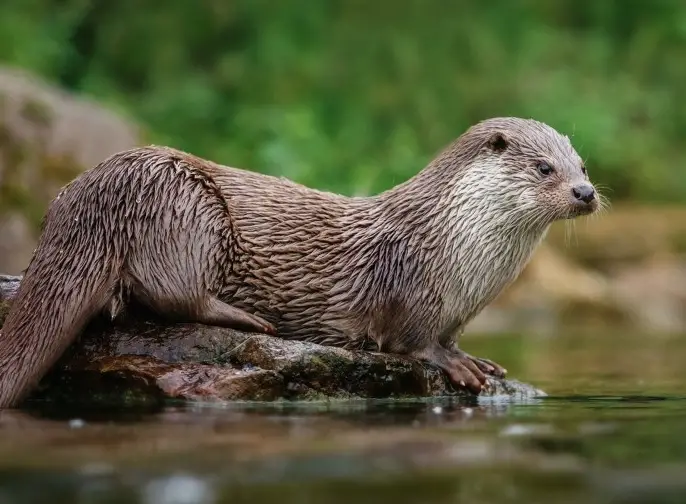Have you ever wondered if otters live in ponds? Otters are fascinating creatures that capture the hearts of many animal lovers around the world. They are known for their playful nature, sleek bodies, and their love for water. But do they really live in ponds?
Understanding Otters
Before we delve into whether otters live in ponds, let’s understand a little about these adorable creatures. Otters are semi-aquatic mammals that belong to the family Mustelidae, which also includes weasels, badgers, and minks. They are known for their webbed feet, water-repellent fur, and streamlined bodies, making them excellent swimmers.

Credit: m.youtube.com
Where Do Otters Live?
While otters are commonly associated with rivers, they can also inhabit various other aquatic environments. These include lakes, marshes, coastal areas, and yes, even ponds. Otters are adaptable animals and can thrive in different habitats as long as there is an adequate food supply and suitable shelter.
Why Do Otters Live in Ponds?
So, why do otters choose to live in ponds? Ponds can provide otters with a consistent source of food, including fish, amphibians, and crustaceans. Additionally, ponds offer a relatively undisturbed environment for otters to build their dens and raise their young. The calm and secluded nature of ponds can make them an attractive habitat for otters seeking a peaceful and secure place to reside.
The Role of Ponds in Otter Conservation
Conserving natural habitats for otters, including ponds, is crucial for the survival of these charismatic mammals. Ponds contribute to the overall ecosystem by supporting a diverse range of plant and animal species, and otters play a vital role in maintaining the balance of these ecosystems. By protecting ponds and the surrounding habitats, we can help ensure the continued existence of otters in the wild.

Credit: www.wildlife-removal.com
Benefits of Otters in Ponds
Having otters in ponds can have several positive effects on the environment. Otters are natural predators, and their presence can help regulate the populations of certain prey species. This, in turn, can prevent overpopulation and maintain the ecological equilibrium within the pond ecosystem. Furthermore, otters contribute to the overall biodiversity of ponds and promote a healthy and thriving aquatic environment.
Interaction with Other Pond Inhabitants
As otters coexist with other pond inhabitants, their presence can influence the behaviors and dynamics of these species. For example, the presence of otters may affect the distribution and abundance of fish and amphibians in the pond. Understanding these interactions is essential for studying the intricate relationships within pond ecosystems and the impact of otters on their surroundings.
Conclusion
In conclusion, otters do indeed live in ponds, and these aquatic habitats play a significant role in supporting otter populations. By preserving and protecting ponds, we not only provide a home for otters but also contribute to the conservation of diverse ecosystems. Otters are a valuable part of our natural world, and understanding their relationship with ponds helps us appreciate the intricate connections that exist within the environment.




